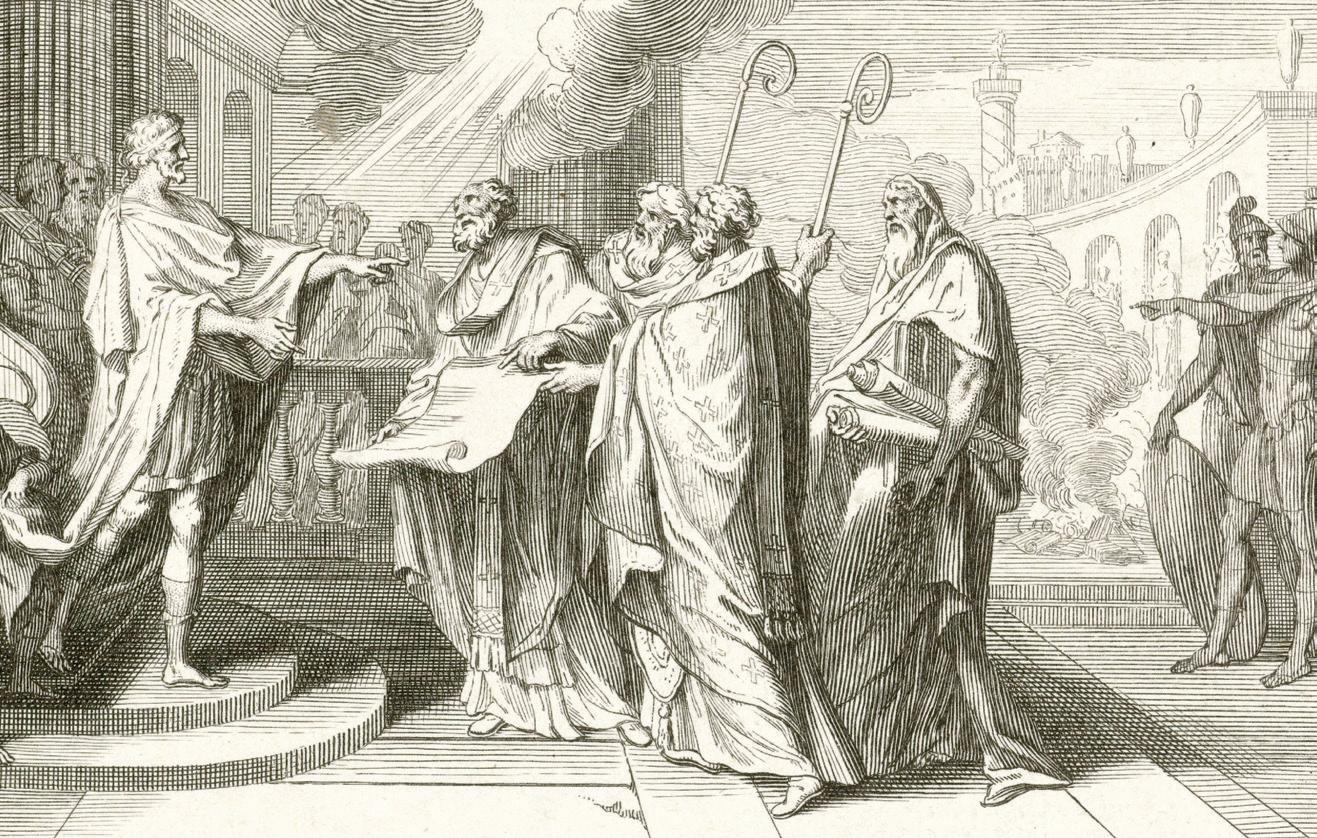
4 minute read
1700 years ago
BY PASTOR BRIAN LUNN
The year of our Lord 2025 marks the 1700th anniversary of the Council of Nicaea. Concerned about the rise of Arianism and the unrest it created among the Christians in his empire, Constantine the Great assembled bishops (pastors) from all over the Roman Empire and beyond to deal with the issue, along with other questions that concerned the church at large. The tradition of gathering bishops at councils to decide matters of general concern for Christian congregations was not a new one, but two things made this gathering unique. First, it was called for by a Roman emperor, and second, it gathered representatives from the entire Christian world.
The most famous result of the council was the Nicene Creed, the most widely accepted formula of Christian belief in the world. For this brief, clear, and theologically sound statement of Christian faith, we should hold the council in grateful remembrance.
The council was conducted honorably. Constantine exhorted the bishops to strive for unity, but he did not try to impose a theological agenda of his own upon the bishops, nor did he vote. Furthermore, he did not tamper with the canon of Scripture, as some rumors have had it. He might as well have tried to change what was in last month’s Lutheran Ambassador after all the copies were out in the mail. We have copies of Bibles from before Nicaea and even lists of which books belong in the Bible from before Nicaea, with the result that we can be confident there was no funny business at the council. Both the biblical canon and the doctrine of Christ’s divinity and humanity were confessed by the council as they were believed in the church at large—not as if they were imposed from above or outside.
But the council was also a bad idea. It was not long before it became clear that a Christendom-wide council summoned by a Roman emperor could not succeed in stamping out heresy or fostering peace in the church. Arianism grew and thrived in the 300s. Emperors sometimes took the side of the Arians, and chaos ensued. Appeals by church leaders to the secular authorities, once impossible because Christianity was a persecuted minority, now became commonplace. Athanasius, the hero of orthodoxy, was exiled from his congregation in Alexandria (Egypt) five times by the successors of Constantine.
And while emperors and heretics disturbed the peace of the church, the councils of bishops themselves proved little better. Nicaea was the most honorable of all such gatherings. Many of the bishops who attended Nicaea had been persecuted for their faith. They may have been elated to have an emperor in the fold, but they were not cowed by him; subsequent generations were. Councils became arenas for shameless political jockeying, and the office of bishop became a desirable post, not for the shepherding of souls, but for the gathering of worldly power. The more “universal” a council aimed to be, the more shameless were the power grabs.
History is messy, I suppose mostly because it has to do with people, and people’s lives are not as clear-cut as we would like them to be. The Bible shows us that even the “good guys” leave much to be desired. Jacob was a cheater. Peter was a blowhard and a coward. Noah got drunk. We wish we could look back and cheer for certain people without qualification, but that would be dishonest and miss the point.
The hero of history is Jesus, not any human character. We can be thankful for Constantine’s conversion, or for Athanasius’ defense of good doctrine, or for the Council of Nicaea’s clear statement of Christian faith. But we should not pretend that any person or council is flawless. Instead, we would do well to approach both distant history and our own lives with humility. Let God be the hero—the One who can make good things out of the biggest messes.
Lunn serves Word of Life Lutheran, Upsala, Minn.
Author’s note: If you’re looking for a book to read to commemorate this anniversary year, permit me to recommend The Nicene Creed: An Introduction by Phillip Cary. This book examines the Creed line by line in a devotional style with very short chapters.










